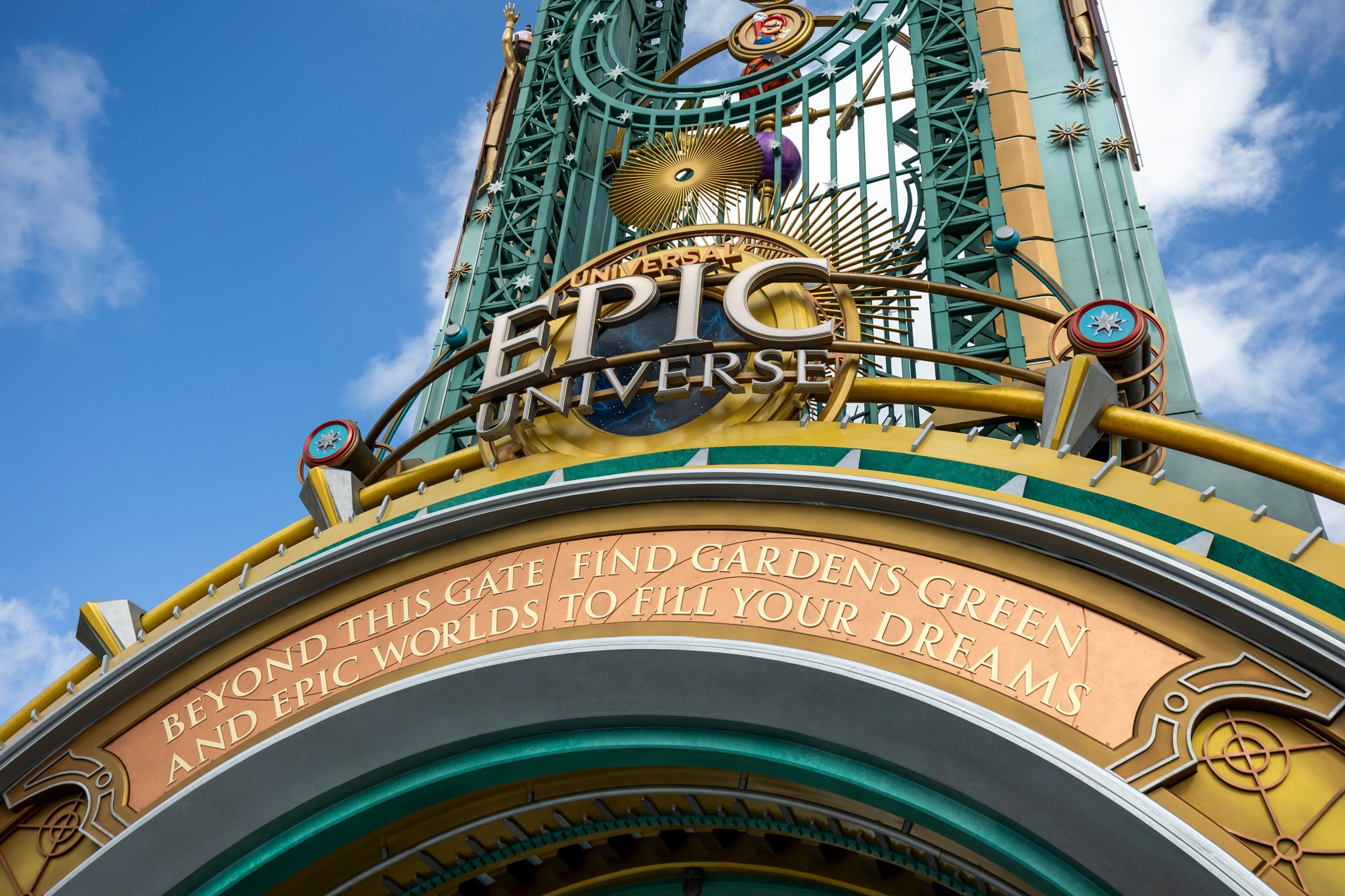Thursday marks the launch of the first new major theme park in Central Florida in nearly 30 years—and it’s a big deal for NBCUniversal, the state of Florida, and theme park lovers across the country.
Epic Universe is now the largest of the company’s theme park properties, spanning 750 acres (though just 110 acres have been used so far). The park features five themed worlds: The Wizarding World of Harry Potter—The Ministry of Magic, Super Nintendo World, How to Train Your Dragon—The Isle of Berk, Celestial Park, and Dark Universe.
It’s built to appeal to the teen/young adult crowd, whose childhood was built on characters like Hiccup, the hero of the How To Train Your Dragon franchise, Nintendo games, and Harry Potter, rather than Pooh and Mickey Mouse. It is heavy with intense rollercoasters and dark rides (attractions where riders sit in guided vehicles).
Tickets are already selling fast and Epic Universe is expected to be a top destination for tourists this year. And executives at Comcast, parent company of Universal, say they’re not planning to slow down the emphasis on theme parks—especially as people’s attention spans for screens, whether television or film, is harder to capture.
“The question always was how does that affect different parts of media,” says Mike Cavanagh, president of Comcast. “While I think we’re doing a great job navigating that … I think one of the fantastic things about the experiences business is that there’s no replacement for being here live. You put your phones down, you’re immersed and you’re experiencing all of this.”
Epic Universe is the latest theme park for Comcast, but other experiences are right around the corner. Later this year, a year-round Hollywood Horror Nights will open in Las Vegas, with other locations expected to be announced. Next year, the company will open Universal Kid’s Park in Briscoe, Texas. And in 2031, the company will open a theme park in the UK.
While Epic Universe is as new as a park can be, Mark Woodbury, chairman and CEO of Universal Destinations & Experiences, says his team is already thinking of what’s next there.
“This is the first step in an epic future,” he says. “There’s a lot of room for expansion. We’re already thinking about how that plays out. … New attractions [are] coming. New Intellectual properties [are] coming. [It’s] all part of our philosophy to grow our business by expanding our existing footprint.”
Epic Universe isn’t just a potential big moneymaker for Comcast. It could mean a big windfall for Florida as well. The park is expected to generate $2 billion for the state in its first year and create more than 17,500 jobs in year one, according to calculations by Dr. Sean Snaith, director of the University of Central Florida’s Institute for Economic Forecasting.
Snaith further estimated the Universal Orlando parks have generated an economic impact of $44 billion since 2019—and the company’s investment in building Epic Universe has had a nationwide economic impact of $11 billion so far.
But the stakes are highest, of course, for Universal. Last year, more than 75 million people came to Orlando, the vast majority of which were there for its theme parks. Disney lures more visitors, but Epic Universe could narrow the gap. Officials say the hope is between this and the company’s other parks, visitors will opt for a much longer stay to explore them all.
“If you’re a Harry Potter fan, you need to see all three parks. That really speaks to the one-week vacation,” says Woodbury.
This story was originally featured on Fortune.com

